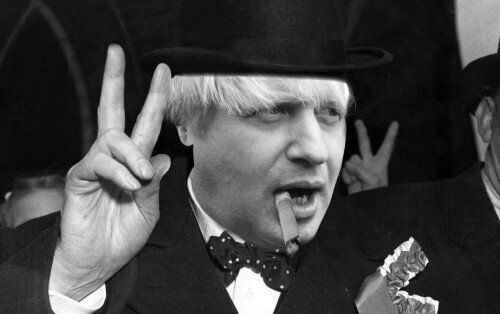Says Simon Jenkins, in response to yesterday’s political obituary of Ian Paisley by Gerry Adams:
Why do rats float while good men sink? Readers may have exploded over the headline on this page yesterday. It read “A fascinating, gracious man”, and crowned a eulogy on Northern Ireland’s retiring first minister, Ian Paisley, written by his one-time bitterest foe, Gerry Adams of Sinn Féin/IRA.
Adams described Paisley as variously civilised, good-humoured, respectful, cordial and a man whom “I would like to know better”. Funny that Adams, or at least his friends, spent much of their lives trying to kill him or his ilk. As for Paisley’s role in inciting violence and tension, it “whetted my political appetite and radicalised a generation of young people like myself”. It was almost a thank you. It was sickening.
…
These men eventually eliminated moderate leaders so they could claim moderation for themselves. They smashed power-sharing so they could share power between themselves. They now pretend that change could not have been faster because the people would not let them. The climate of public opinion in the province was not ready.That is a lie. These men were the climate, and it was one of systematic bigotry and violence. They chose their methods and terrorised all who opposed them. While religious sectarianism elsewhere in Europe was on the wane, lovers of Northern Ireland had to watch in despair as it drifted to ever greater separatism – territorially, politically and psychologically.
The Good Friday agreement did not end this polarisation. It is best described as a moment in a long process, when Tony Blair cleared from the battlefield the moderate clutter of Hume and Trimble so that Adams and Paisley could see the whites of each other’s eyes.
Blair’s prisoner release turned more terrorists and gangsters on to the streets of Britain than anything in modern history. By pandering to extremism it destroyed the electoral bases of both Hume and Trimble. It rewarded Adams for his negotiating cunning and Paisley for his intransigence. The spoils of violence were recouped by the men who had opposed peace.
What restored devolved government to Stormont was not Good Friday but, as Adams claimed yesterday, a decision by him and Paisley to abandon their former ways, stand on their heads and compromise. Each got what he wanted and could seek comfort in old age, lubricated with exorbitant amounts of British money.
Needless to say, Paisley was soon “Paisleyed” by the hardliners he had once led, and has had to resign. As anyone who walks the Falls will know, the Real IRA is still a menace to Adams. The legacy of four decades, if not four centuries, of communal hatred is entrenched in segregated schools and housing estates. The men who now claim to have brought peace to Ulster delayed it so long that their peace is insecure and their landscape traumatised.
A cliche of conflict studies holds that only leaders of extremist factions can deliver closure. Hence Kenyatta of Kenya, Mugabe of Zimbabwe and Begin of Israel. Hence the “feelers” put out to Moqtada al-Sadr in Iraq, the Taliban in Afghanistan and Hamas in Gaza. Eventually we must all “sit down with the men of violence”.
To that thesis history can only reply, sometimes yes and sometimes no. When there is a future to be rebuilt, bygones must be bygones. But it is one thing to forgive, quite another to forget.


